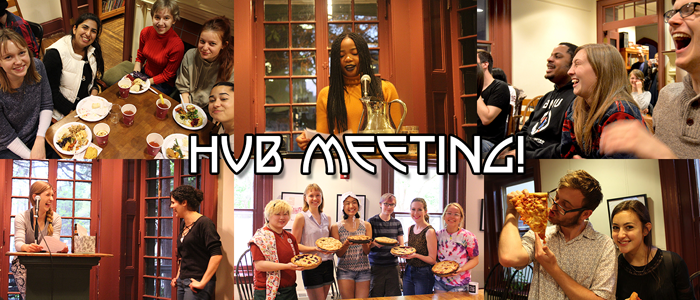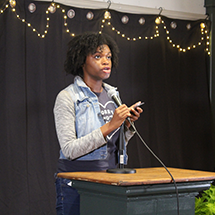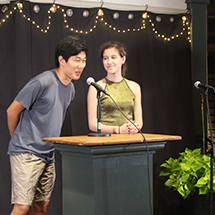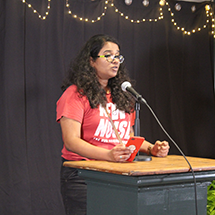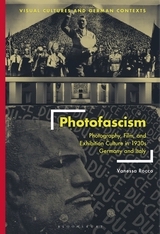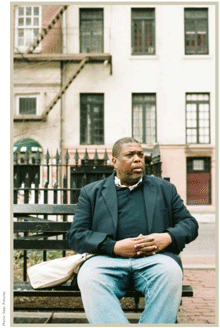March 2021
Monday, 3/1
A meeting of the Writers House Planning Committee
5:00 PM on Zoom
Join us for a meeting of the Writers House Planning Committee (also known as "the Hub") — the core group of engaged students, staff, faculty, and volunteers who help make things happen at Writers House. Anyone is welcome to become a Hub member by participating in Hub activities and helping out. Members of the Hub plan programs, share ideas, and discuss upcoming projects.
Tuesday, 3/2
Time Sensitive: Tyrone Williams
6:00 PM via YouTube
Curated and hosted by Ethan Plaue and Rebecca N. Liu, Time Sensitive is a reading series that explores the time-making practices of poetry, performance, and multimedia art. Poets and artists may engage themes such as crisis time, ordinary time, affecting through time, micro and macro time, shared and unshared time, the materiality of time, decolonial time, and the new times of past, present, and future — in short, artworks that express a sensitivity to time.
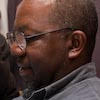 Tyrone Williams teaches literature and theory at Xavier
University in Cincinnati, Ohio. He is the author of several
chapbooks and six books of poetry: c.c. (Krupskaya 2002),
On Spec (Omnidawn 2008), The Hero Project of the Century
(The Backwaters Press 2009), Adventures of Pi (Dos Madres
Press 2011), Howell (Atelos Books 2011) and As Iz (Omnidawn
2018). A limited-edition art project, Trump l’oeil, was
published by Hostile Books in 2017. He and Jeanne Heuving
edited an anthology of critical essays, Inciting Poetics
(University of New Mexico Press, 2019). His new website is
at www.flummoxedpoet.com.
Tyrone Williams teaches literature and theory at Xavier
University in Cincinnati, Ohio. He is the author of several
chapbooks and six books of poetry: c.c. (Krupskaya 2002),
On Spec (Omnidawn 2008), The Hero Project of the Century
(The Backwaters Press 2009), Adventures of Pi (Dos Madres
Press 2011), Howell (Atelos Books 2011) and As Iz (Omnidawn
2018). A limited-edition art project, Trump l’oeil, was
published by Hostile Books in 2017. He and Jeanne Heuving
edited an anthology of critical essays, Inciting Poetics
(University of New Mexico Press, 2019). His new website is
at www.flummoxedpoet.com.
Wednesday, 3/3
WE ALL FEEL LIKE IT
6:00 PM (ET) on YouTube
hosted by: Michelle Taransky
Thursday, 3/4
The Sensible Nonsense Project
6:30 PM (ET) on YouTube
hosted by: Arielle Brousse
sponsored by: The Lucy DeMarco Fund for Youth Literature
Six community members will share stories about their favorite books from childhood, what those books taught them, and how those lessons continue to influence their adult lives. Featured presenters include Huda Fakhrredine, Josh Herren (C’13), Mahailya Hinsey (C’23), Sarah Marshall, Anton Moore, and Chelsey Zhu (C’22).
Huda Fakhreddine’s work focuses on modernist movements or trends in Arabic poetry and their relationship to the Arabic literary tradition. She is interested in the role of the Arabic qaṣīda as a space for negotiating the foreign and the indigenous, the modern and the traditional, and its relationship to other poetic forms such as the free verse poem and the prose poem. She is the author of Metapoesis in the Arabic Tradition (Brill, 2015) and the co-translator of Lighthouse for the Drowning (BOA editions, 2017) and The Sky That Denied Me (University of Texas Press, 2020). Her translations of modern Arabic poems have appeared in Banipal, World Literature Today, Nimrod, ArabLit Quarterly and Middle Eastern Literatures among others. Her book of creative non-fiction titled Zaman saghir taht shams thaniya (A Small Time under a Different Sun) was published by Dar al-Nahda, Beirut in 2019. Her book The Arabic Prose Poem: Poetic Theory and Practice is forthcoming from Edinburgh University Press in 2021.
Josh Herren is a writer and elementary school teacher living in Philadelphia, Pennsylvania. Josh has a B.A. from the University of Pennsylvania, where he worked at the Kelly Writers House and wrote about history, sexuality, and art. He currently writes about theater for Phindie and the Broad Street Review. He also hosts the Chosen by Committee podcast, in which he and his cohosts are reading every pulitzer prize winning play since 1918 so you don't have to. Josh is passionate about education, theater, and convincing others that Philadelphia is the greatest city on earth. Oh, and he is married to KWH alum, Henry Steinberg.
Mahailya Hinsey is a sophomore in the college studying creative writing and photography. She works for the Kelly Writers House. She's always loved books and has been making up stories for as long as she can remember including long nonsense "survival" scenarios. Nowadays she can be found avoiding people and watching clips from Crazy Ex-Girlfriend.
Sarah Marshall is a writer, podcaster, and media critic focused on setting straight our collective memory—or at least getting to the bottom of why we believe and in turn define ourselves by popular narrative and myth. Why is the maligned woman a staple of our news media? Why do we believe that serial killers are brilliant? How do we keep stumbling into all these moral panics? These are some of the questions that propel Sarah forward. She is the co-host of the popular modern history podcast You’re Wrong About, which has been highlighted in the New Yorker, the Guardian and Time Magazine. Her writing has appeared in the Believer, Buzzfeed and the true crime collection Unspeakable Acts. She loves Portland, Oregon, Philly and Las Vegas in that order, and it has been rumored that she is writing a book about the Satanic Panic.
Anton Moore works as a freelance TV producer, a community activist and an event planner. He is President and Founder of Unity in the Community, a non-profit dedicated to bringing about change to the lives of South Philadelphians. Anton’s been called a ‘Game changer’ (CBS News), a ‘Hero of the Community’, and “one of the city’s promising young leaders” in BillyPenn’s list for “Who’s Next: Public Service”. In 2016 he was appointed by Governor Tom Wolf to be a member of the Pennsylvania Commission on African American Affairs which serves as the commonwealth’s advocate agency for the African American community in Pennsylvania. For seven years he produced & booked talent for television segments for Black Entertainment Television’s (BET) Rap City , for BET Award show specials, and the BET Hip Hop show “The Deal”. He started in broadcasting as an intern at WUSL radio (Power 99 FM) and went on to be a show producer, Promotions Assistant, and onsite personality while also attending the Community College of Philadelphia. Anton was born in Philadelphia and was raised in the Tasker Homes Housing Development in South Philadelphia.
Chelsey Zhu is a junior in the College studying English and Classics. She is the Campus Editor for 34th Street Magazine. She also co-hosts, edits, and produces a podcast on children's literature called Kidlit Chronicles, which discusses the value in adults revisiting childhood classics and the effect that nostalgia has on our impressions of books. The podcast is available on Spotify.
Friday, 3/5
Saturday, 3/6
Sunday, 3/7
Monday, 3/8
Tuesday, 3/9
Wednesday, 3/10
Thursday, 3/11
Friday, 3/12
Saturday, 3/13
Sunday, 3/14
Monday, 3/15
City Planning Poetics 10: Urban Futures
Christina Jackson and Asali Solomon in conversation
6:00 PM on YouTube
sponsored by: Creative Ventures
Curated by Davy Knittle, City Planning Poetics is a semesterly series that invites one or more poets or more planners, designers, planning historians, or others working in the field of city planning to discuss a particular topic central to their work, to ask each other questions, and to read from their current projects.
Christina Jackson, PhD is a resident of West Philadelphia. She is an urban sociologist and scholar-activist with interests in the relationships between poor/middle class neighborhoods of color, their environments and city entities/institutions. She takes a social justice approach by centering the stories and lives of residents through immersing herself within community struggles. Christina is a professor of Sociology at Stockton University in New Jersey. Christina received her PhD from University of California Santa Barbara and completed her postdoctoral studies in Africana Studies at Gettysburg College. She is co-author of "Embodied Difference: Divergent Bodies in Public Discourse" (Lexington Books) and "Black in America: The Paradox of the Color Line" (Polity Inc). She is also on the board of Camp Sojourner Girls Leadership program and Land health Institute.
Asali Solomon is the author of The Days of Afrekete, a novel forthcoming from Farrar, Straus & Giroux in September. Her novel Disgruntled was cited as one of the best books of 2015 by the San Francisco Chronicle and the Denver Post; the short stories in her first book, Get Down earned her a Rona Jaffe Foundation Writer’s Award and the National Book Foundation’s “5 Under 35” honor. Her writing has appeared in McSweeney's, Kenyon Review, O: The Oprah Magazine, Vibe, Essence, the Paris Review Daily, and in the anthology How We Fight White Supremacy: A Field Guide to Black Resistance. Solomon teaches fiction writing and African American and Caribbean Literature at Haverford College, and has become increasingly chauvinistic about being a near-lifelong West Philadelphian.
Tuesday, 3/16
John Marshall: The final founder
A conversation with Robert Strauss
12:00 PM (ET) on YouTube
Hosted by: Dick Polman
Sponsored by: The Sylvia Kauders Program
In John Marshall: The Final Founder (Lyons Press 2021), Robert Strauss demonstrates the significance of Chief Justice John Marshall in holding the union together after the original founding days. The Supreme Court met in the basement of the new Capitol building in Washington when Marshall took over, which is just about what the executive and legislative branches thought of the judiciary. The Final Founder emphasizes Marshall’s singular achievement — to move the Court from the basement and truly make it Supreme — and advocates for a change in how we should understand the timeline for the “founding” of the United States. And to make this history come alive, Dick and Robert will talk about how Marshall's groundbreaking career resonates with the America we know today.
Robert Strauss has been a reporter at Sports Illustrated; a feature writer for the Philadelphia Daily News; a news and sports producer for KYW-TV, then the NBC affiliate in Philadelphia, and the TV critic for the Philadelphia Inquirer and Asbury Park Press. For the last two decades, he has been a freelance journalist, his most prominent client being the New York Times, where he has had more than 1000 by-lines. He has taught non-fiction writing at the University of Pennsylvania since 1999 and been an adjunct professor at Temple University, the University of Delaware and St. Joseph’s University as well. He is the author of Worst. President. Ever. among other books, including his latest, John Marshall: The Final Founder (Lyons Press 2021).
Wednesday, 3/17
SPEAKEASY OPEN MIC NIGHT
7:30 PM (ET) on Zoom and YouTube
watch: here
register: here
Our student-run open mic night welcomes all kinds of readings, performances, spectacles, and happenings. You'll have three minutes on Zoom to read, sing, or perform (poetry, prose, music, stand-up: it's up to you!). Registration for the event will open soon!
Thursday, 3/18
Photofascism: Weaponizing Media in the 1930s and the Present
A presentation by Vanessa Rocco
5:00 PM (ET) on Youtube
sponsored by: RealArts@Penn
hosted by: Anthony DeCurtis
watch: here
Photography + fascism in interwar Europe developed into a highly toxic and combustible formula. Particularly in concert with aggressive display techniques, the European fascists were utterly convinced of their ability to use the medium of photography to manufacture consent among their publics. Unfortunately, as we know in hindsight, they succeeded. The 1930s provides a potent case study for every generation, and it is as urgent as ever in our global political environment to understand the central role of visual imagery in what transpired. Photofascism demonstrates precisely how dictatorial regimes use photographic mass media, methodically and in combination with display, to persuade the public with oftentimes highly destructive—even catastrophic— results.
Vanessa Rocco, author of Photofascism: Photography, Film, and Exhibition Culture in 1930s Germany and Italy (Bloomsbury Press) is Associate Professor of Humanities and Fine Arts at Southern New Hampshire University, Manchester, and former Associate Curator at the International Center of Photography (ICP) in New York. She is also co-editor of The New Woman International: Representations in Photography and Film from the 1870s to the 1960s (University of Michigan Press, 2011/2012).
Friday, 3/19
Saturday, 3/20
Sunday, 3/21
Monday, 3/22
Tuesday, 3/23
Wednesday, 3/24
Thursday, 3/25
Moscow Conceptualism
Reading of New Translations and Roundtable Discussion
6:00 PM ET on YouTube
moderated by: Kevin M.F. Platt & Matvei Yankelevich
panelists:
Simon Schuchat and Ainsley Morse read Dmitri Prigov
Yelena Kalinsky and Brian Droitcour read Andrei Monastyrski
Philip Metres reads Lev Rubinstein
The release of several books in translation over the last few years is bringing Moscow Conceptualist writers and artists as a coherent movement to an English-language readership and scholarly community for the first time. This reading by translators of the work of Moscow Conceptualists will be followed by a discussion about the authors' works and current relevance.
Moscow Conceptualism differs substantially from the preceding and contemporaneous conceptualist moment in western European and American art, and these differences are marked by political context as well as by Moscow Conceptualism's relationship and critical distance to earlier Soviet avant gardes. Investigation into this body of work is central to an understanding of late-Soviet art and poetry, and the place of performance and criticism within the art-production of the period. The performance work of Prigov and Monastyrski in particular is a direct, acknowledged influence on political performance art/actions in Putin's Russia (Pussy Riot, Voina, etc.) and therefore it is useful to take Moscow Conceptualist approaches and methodology into account when discussing contemporary politically-oriented art actions in the Russia.
Brian Droitcour is a writer, translator, and curator, who received a PhD in Comparative Literature at New York University with a dissertation on Andrei Monastyrski. From 2002 to 2007 he lived in Moscow, where he covered exhibitions for The Moscow Times, contributed to the Russian art monthly Artchronika and edited their English digest editions, and translated books for WAM Knigi, an art publisher. He has contributed essays and reviews to Artforum, Art in America, Rhizome, The New Inquiry, and other publications. In 2012 he won second prize in the Compass poetry translation competition for his rendering of Marina Tsvetaeva’s 1921 long poem, “Upon a Red Steed.”
Yelena Kalinsky is an art historian based in Lansing, MI. She earned her Ph.D. in Art History in 2013 from Rutgers, the State University of New Jersey with a dissertation entitled “Collective Actions: Moscow Conceptualism, Performance, and the Archive, 1976-1989.” In 2012, she edited and translated a volume of audience recollections of early Collective Actions performances for Soberscove Press. Previously, she worked as an archivist and Dodge curatorial fellow at the Zimmerli Art Museum, where she curated the exhibition Performing the Archive: Collective Actions in the 1970s & 1980s. Her writing has appeared in ARTMargins, Russian Literature, Nova Galerija Newspapers, and elsewhere.
Philip Metres is the author of ten books, including Instants (UDP), Shrapnel Maps (forthcoming), the essay collection The Sound of Listening, the poetry books Sand Opera and Pictures at an Exhibition, and a translated collection of Arseny Tarkovsky’s poetry, I Burned at the Feast. His work has garnered a Lannan fellowship, two NEAs, six Ohio Arts Council Grants, and more. He is professor of English and director of the Peace, Justice, and Human Rights program at John Carroll University.
Andrei Monastyrski (b. 1949) is a poet, author, artist, art theorist based in Moscow. He is, along with Ilya Kabakov, one of the founders of conceptualism in Russia. He graduated from Moscow State University with a degree in philology and worked for many years at the Literature Museum in Moscow. In 1973, he began to work with serial structures and minimalist sound compositions and in 1975, turned his attention to poetic objects and actions. He is best known as a founding member and chief theoretician of the Collective Actions group, which began to stage outdoor actions on the edges of Moscow in 1976. He compiled many of the group’s documentary volumes, Trips Out of the City, and participated in many solo and group exhibitions with his own work. In 2003, Monastyrski was awarded the Andrei Bely Prize in literature. He also received the Soratnik Prize in 2008 and the Innovation Prize in 2009. His poetry and theoretical writings have been gathered into several Russian-language volumes by the publisher German Titov for his Library of Moscow Conceptualism series.
Ainsley Morse has been translating 20th- and 21st-century Russian and (former-) Yugoslav literature since 2006. She teaches Russian language and literature at Dartmouth College. Previous UDP publications include the co-translation of Vsevolod Nekrasov (with Bela Shayevich, UDP 2013) and Kholin 66: Diaries and Poems (also with Shayevich, 2017). Other recent translations include the farcical Soviet pastoral Beyond Tula, by Andrey Egunov, and a collection of theoretical essays by the brilliant Formalist Yuri Tynianov. Coming up is the macabre modernist prose of Konstantin Vaginov and a number of contemporary Russian women poets.
Dmitri Alexandrovich Prigov (1940-2007) is one of the most important figures in the literary history of the late Soviet and early post-Soviet era, and is considered one of the founders of Moscow Conceptualism. Prigov was a prolific writer, in all genres, as well as an accomplished visual artist. However, almost until the collapse of the Soviet Union, his writing circulated solely in unofficial samizdat editions and overseas publications. In 1986, he was briefly detained in a Soviet psychiatric hospital, but was released after protests from establishment literary figures. With the onset of glasnost and perestroika, he was able to publish and show his visual art in “official” venues, and also exhibited his art outside of Russia. After the collapse of the Soviet Union, his work was acknowledged with several awards, including, in 2002, the Boris Pasternak prize. He acted in films, traveled widely with performances, readings, and exhibits of his work, and often collaborated with younger artists. Prigov died, in Moscow, of a heart attack in 2007. His collected works, edited by Mark Lipovetsky, are published in Russia by Novoe Literaturnoe Obozrenie.
Born in 1947, Lev Rubinstein was a major figure of Moscow Conceptualism and the unofficial Soviet art scene of the 1970s and 1980s. While working as a librarian, he began using catalogue cards to write sequential texts. He described his “note-card poems,” as a “hybrid genre” that “slides along the edges of genres and, like a small mirror, fleetingly reflects each of them, without identifying with any of them.” His work was circulated through samizdat and underground readings in the “unofficial” art scene of the sixties and seventies, finding wide publication only after the late 1980s. Now among Russia’s most well-known living poets, Rubinstein lives in Moscow and writes cultural criticism for the independent media. His books in English translation include Here I Am (Glas, 2001), Catalogue of Comedic Novelties (UDP, 2004), and Thirty-Five New Pages (UDP, 2011). In Compleat Catalogue of Comedic Novelties (UDP, 2014), his note-card poems appear in their entirety in English for the first time.
A retired American diplomat with over twenty-five years of service, Simon Schuchat worked on U.S.-Russian affairs at the State Department in Washington, and in the U.S. Embassy in Moscow. His poetry can be found in several rare books, including Svelte (published by Richard Hell when Schuchat was 16), Blue Skies (Some Of Us Press), Light and Shadow (Vehicle Editions), All Shook Up (Fido Productions), and At Baoshan (Coffee House Press), as well as the anthologies None of the Above (edited by Michael Lally) and Up Late (edited by Andrei Codrescu). A native of Washington DC, he attended the University of Chicago and published the journal Buffalo Stamps before moving to New York in 1975 and becoming part of the St. Mark’s downtown writing scene. Schuchat was also active in small press publishing; he edited the 432 Review and founded Caveman. In addition to the University of Chicago, he has degrees from Yale, Harvard, and the Industrial College of the Armed Forces at the National Defense University. He taught at Fudan University in Shanghai, and led workshops at the Poetry Project at St. Mark’s Church. In 2016, his translation of Chinese poet Hai Zi’s lyric drama Regicide was published in Hong Kong.
Matvei Yankelevich is a founding member of the Ugly Duckling Presse editorial collective and has curated UDP's Eastern European Poets Series since 2002. He teaches translation and book arts at Columbia University's School of the Arts. His most recent book of poetry is Some Worlds for Dr. Vogt (Black Square). His co-translation (with Eugene Ostashevsky) of Alexander Vvedensky's An Invitation for Me to Think (NYRB Poets), which received a National Translation Award. He has been awarded fellowships from the National Endowment for the Arts, the New York Foundation for the Arts, and the National Endowment for Humanities.
LINKS
RELATED BOOKS RECENTLY PUBLISHED IN ENGLISH TRANSLATION
Andrei Monastyrski / Elementary Poetry
Dmitri Prigov / Soviet Texts...
Vsevolod Nekrasov / I Live I See
Lev Rubinstein / Compleat Catalogue of Comedic Novelties
COLLECTIVE ACTIONS: AUDIENCE RECOLLECTIONS, 1976-1981
Friday, 3/26
Saturday, 3/27
Sunday, 3/28
Monday, 3/29
A Reading by Hilton Als
Kelly Writers House Fellows Program
6:30PM (ET) on YouTube
NOTE: An RSVP is not required to attend this virtual event, however if you’d like to receive a reminder and a direct link e-mailed to you on the day of the program, please write to Fellows Program Coordinator Lily Applebaum at whfellow@writing.upenn.edu
Hilton Als began contributing to The New Yorker in 1989, writing pieces for ‘The Talk of the Town,’ and later became a staff writer in 1994, theatre critic in 2002, and lead theater critic in 2012. His reviews are not simply reviews; they are provocative contributions to the discourse on theatre, race, class, sexuality, and identity in America. He is currently working on a new book titled I Don’t Remember (Penguin, early 2021), a book length essay on his experiences in AIDS era New York. Before coming to The New Yorker, Als was a staff writer for the Village Voice and an editor-at-large at Vibe. Als edited the catalogue for the 1994-95 Whitney Museum of American Art exhibition “Black Male: Representations of Masculinity in Contemporary American Art.” His first book, The Women, was published in 1996. His book, White Girls, a finalist for the National Book Critics Circle Award in 2014 and winner of the 2014 Lambda Literary Award for Non-fiction, discusses various narratives of race and gender. He wrote the introduction to the Penguin Classics edition of The Early Stories of Truman Capote, and was guest editor for the 2018 Best American Essays. He wrote Andy Warhol: The Series, a book containing two previously unpublished television scripts for a series on the life of Andy Warhol. His in-progress debut play, Lives of the Performers, has been performed at Carolina Performing Arts and LAXART in Los Angeles. In 1997, the New York Association of Black Journalists awarded Als first prize in both Magazine Critique/Review and Magazine Arts and Entertainment. He was awarded a Guggenheim for creative writing in 2000 and the George Jean Nathan Award for Dramatic Criticism for 2002-03. In 2016, he received the Lambda Literary’s Trustee Award for Excellence in Literature, as well as the Windham Campbell Prize for Nonfiction. In 2017 Als won the Pulitzer Prize for Criticism, and in 2018 the Langston Hughes Medal. In 2016, his debut art show “One Man Show: Holly, Candy, Bobbie and the Rest” opened at the Artist’s Institute. He has curated “Alice Neel, Uptown” and “God Made My Face: A Collective Portrait of James Baldwin” at the David Zwirner Gallery in New York City. He is also curating three successive solo exhibitions at the Yale Centre for British Art, the first exhibit in 2018 featured Celia Paul, the second, in 2019, features Lynette Yiadom-Boakye, the third will feature Paul Doig. In 2019 Als partnered with WNYC’s Greene Space on a limited podcast series titled The Way We Live Now: Hilton Als and America’s Poets. He recently contributed an essay to Moonlight, a limited edition book about the film of the same name. Als is an associate professor of writing at Columbia University’s School of the Arts and has taught at Yale University, Wesleyan, and Smith College. He lives in New York City.
Tuesday, 3/30
Conversation with Hilton Als
Kelly Writers House Fellows Program
11:00AM (ET) on YouTube
NOTE: An RSVP is not required to attend this virtual event, however if you’d like to receive a reminder and a direct link e-mailed to you on the day of the program, please write to Fellows Program Coordinator Lily Applebaum at whfellow@writing.upenn.edu
Hilton Als began contributing to The New Yorker in 1989, writing pieces for ‘The Talk of the Town,’ and later became a staff writer in 1994, theatre critic in 2002, and lead theater critic in 2012. His reviews are not simply reviews; they are provocative contributions to the discourse on theatre, race, class, sexuality, and identity in America. He is currently working on a new book titled I Don’t Remember (Penguin, early 2021), a book length essay on his experiences in AIDS era New York. Before coming to The New Yorker, Als was a staff writer for the Village Voice and an editor-at-large at Vibe. Als edited the catalogue for the 1994-95 Whitney Museum of American Art exhibition “Black Male: Representations of Masculinity in Contemporary American Art.” His first book, The Women, was published in 1996. His book, White Girls, a finalist for the National Book Critics Circle Award in 2014 and winner of the 2014 Lambda Literary Award for Non-fiction, discusses various narratives of race and gender. He wrote the introduction to the Penguin Classics edition of The Early Stories of Truman Capote, and was guest editor for the 2018 Best American Essays. He wrote Andy Warhol: The Series, a book containing two previously unpublished television scripts for a series on the life of Andy Warhol. His in-progress debut play, Lives of the Performers, has been performed at Carolina Performing Arts and LAXART in Los Angeles. In 1997, the New York Association of Black Journalists awarded Als first prize in both Magazine Critique/Review and Magazine Arts and Entertainment. He was awarded a Guggenheim for creative writing in 2000 and the George Jean Nathan Award for Dramatic Criticism for 2002-03. In 2016, he received the Lambda Literary’s Trustee Award for Excellence in Literature, as well as the Windham Campbell Prize for Nonfiction. In 2017 Als won the Pulitzer Prize for Criticism, and in 2018 the Langston Hughes Medal. In 2016, his debut art show “One Man Show: Holly, Candy, Bobbie and the Rest” opened at the Artist’s Institute. He has curated “Alice Neel, Uptown” and “God Made My Face: A Collective Portrait of James Baldwin” at the David Zwirner Gallery in New York City. He is also curating three successive solo exhibitions at the Yale Centre for British Art, the first exhibit in 2018 featured Celia Paul, the second, in 2019, features Lynette Yiadom-Boakye, the third will feature Paul Doig. In 2019 Als partnered with WNYC’s Greene Space on a limited podcast series titled The Way We Live Now: Hilton Als and America’s Poets. He recently contributed an essay to Moonlight, a limited edition book about the film of the same name. Als is an associate professor of writing at Columbia University’s School of the Arts and has taught at Yale University, Wesleyan, and Smith College. He lives in New York City.
Wednesday, 3/31
Plants and Poetics: a panel discussion
Lee Ann Brown, Adjua Gargi Nzinga Greaves, Brenda Iijima, Mary Newell, and Evelyn Reilly
12:00 PM ET on YouTube
moderated by: Davy Knittle
sponsored by: Creative Ventures
REGISTER HERE to attend in person
Plants have long-standing importance in human life and in the human imaginary. In their study of metaphor in daily life, George Lakoff and Mark Johnson defined a number of conceptual metaphors that they claim underlie many thought processes. One of these, “People are plants,” is easy to spot in phrases such as “a budding artist,” “in the flower of youth,” “late bloomer,” or “gone to seed.” Such expressions are semi-conscious. How can we reclaim this deep relationship and honor it intentionally in our practices and vocalizations? As writers and artists concerned about the biosphere, we ask ourselves and our communities: What practices of culture, cultivation, and language support our interconnectedness with plants and release our green- and sap-blooded companions from cultural appropriation? How might the sundry manifestations of our intra-species friendships inform our desire for honorable, ethical, sustainable, and joyous inter-species companionship with members of floral communities? The panelists approach this topic through these lenses:
Lee Ann Brown: Poetry herbariums: meditations on native plants and herbs, writing while infused with the herb's influence from ingesting teas or gardening.
Adjua Gargi Nzinga Greaves: Living indoors with plants across space and time—folklore and histories of the twenty-six plant species I cohabitate with and their relationships to commonly housed plants in the Americas in the 20th and 21st centuries.
Brenda Iijima: Flora as witnesses to human animal activity through time and to other sentient presences. How to reckon with humans’ impacts on plant life, and the living relationships that plants intersect with and nourish, their inter-worlding capacity.
Mary Newell: Approaches toward plant/human connections from the inside out (chlorophyll and hemoglobin), and the question of vegetal expression.
Evelyn Reilly: The many ways plants inhabit our conscious and liminal mental landscapes—dream trees and flowers, planetary imaginary forests, superorganismic sublimities—and resulting visions, nostalgias, insomnias.
These approaches will intersect and fugue with one another in our discussions.



